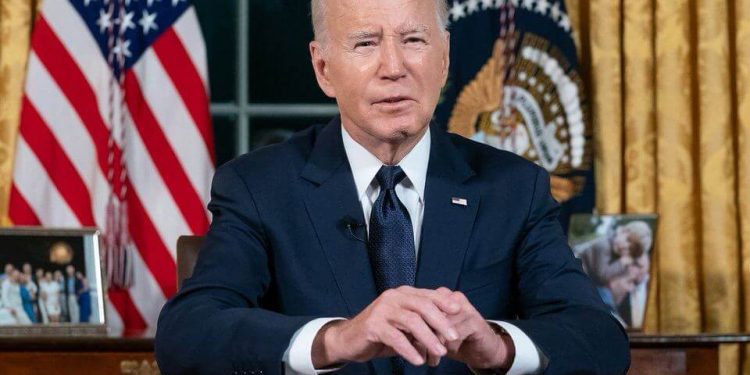In a recent speech from the Oval Office, US President Joe Biden emphasized the pressing need for a significant aid package intended for Ukraine and Israel, totaling around $105 billion. He described the current global situation as pivotal, drawing attention to threats posed by Russia and Hamas to their neighboring democracies.
This vital financial appeal to Congress follows Biden’s visit to Israel after the October 7th attacks by Hamas. The President expressed that this emergency aid would not only support the immediate crisis but would also invest in the long-term security of America.
Despite the urgency of the matter, the House of Representatives currently faces a leadership void, rendering them unable to approve this or any other spending. Biden’s call for unity was apparent, condemning hate crimes against Jews and Muslims in the U.S., and highlighting the tragic death of Wadea al-Fayoume, a six-year-old Palestinian-American, in Chicago.
While details of the aid package are yet to be officially disclosed, the Democratic party hopes that by amalgamating different aid packages, they can secure the necessary backing for Ukraine’s funds, which some Republicans contest.
The challenge lies in navigating a stalled Congress, which has been leaderless in the House after the ousting of Kevin McCarthy. Amidst this political turmoil, Biden expressed hope that America’s responsibility as a great nation would transcend partisan politics, emphasizing that the U.S. shouldn’t let adversaries triumph.
However, the potential of this spending package clearing Congress remains uncertain. Opposition from within the Republican party is evident, with some voicing concerns about linking aid to Israel and Ukraine. After Biden’s speech, Ohio Republican Senator JD Vance expressed disapproval, criticizing the President’s approach.
In a separate development, a State Department official, Josh Paul, resigned in protest of the continued U.S. arms supply to Israel amidst the Gaza conflict. Paul, once responsible for overseeing arm transfers, shared concerns over potential U.S. legal provision violations intended to limit weapon sales to human rights violators.
Details from the US Office of Management and Budget reveal the proposed distribution of the $105 billion request:
- Ukraine to receive $61.4 billion
- Israel designated $14 billion
- Humanitarian aid for Ukraine and other regions at $10 billion
- $14 billion for addressing border drug trafficking and fentanyl concerns
- The Indo-Pacific and Taiwan allocated $7 billion.


